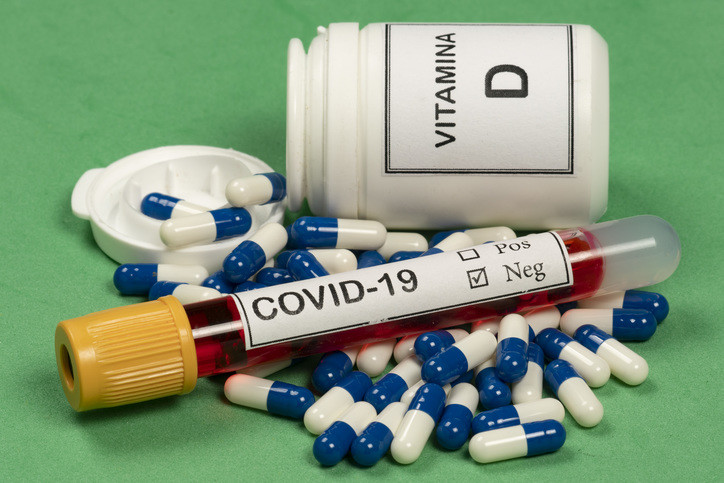The National Institutes of Health (NIH)- Office of Dietary Supplements, defines vitamin D, as a “nutrient found in some foods that is needed for health and to maintain strong bones. It does so by helping the body absorb calcium (one of the bone’s main building blocks) from food supplements.” Healthline explains that vitamin D is also called the “sunshine vitamin” because it is produced in the skin in response to sunlight and is fat-soluble “in a family of compounds that includes vitamins D1, D2, and D3.
In a recently published report in Research Square, scientists examined “The Role of Vitamin D in the Prevention of Coronavirus Disease 2019 infection and Mortality.” According to this report, “Vitamin D levels are severely low in the aging population especially in Spain, Italy and Switzerland. This is also the most vulnerable population for COVID-19.” The researchers concluded that they advise vitamin D supplementation to protect against the virus.
A much larger scale study also seemed to come to a similar conclusion of a “Possible Role of Vitamin D in Suppressing Cytokine Storm and Associated Mortality in COVID-19 Patients.” These researchers found that the data from their study suggested that vitamin D may reduce COVID-19 severity by suppressing cytokine storm in COVID-19 patients. Science News explains that a cytokine storm is an “overproduction of immune cells and their activating compounds (cytokines), which, in a flu infection, is often associated with a surge of activated immune cells into the lungs. The resulting lung inflammation and fluid buildup can lead to respiratory distress and can be contaminated by a secondary bacterial pneumonia – often enhancing the mortality in patients.”
Healthline also reports that while it is found in certain foods like fatty fish and fortified dairy products, our recommended daily intake of 400-800 IU of vitamin D is difficult to achieve through diet alone. Thus, vitamin D deficiency is a common health issue worldwide. This is more so for people with dark skin, who are elderly, overweight, and stay indoors, as these are some of the increased risk factors.
To speak with a healthcare provider at Primary Medical Care Center & Urgent Care Clinic to assess any non-emergency health concerns, including suspected COVID-19 symptoms, please call (305)751-1500 for our Miami-Dade clinic or (954)289-0000 for our Broward clinic. For life-threatening emergencies, always call 911. For coronavirus updates and resources, please visit our website at www.primarymed.com.
Source: https://www.researchsquare.com/article/rs-21211/v1
https://www.medrxiv.org/content/10.1101/2020.04.08.2005578v3
https://www.sciencedaily.com/releases/2014/02/140227142250.htm
